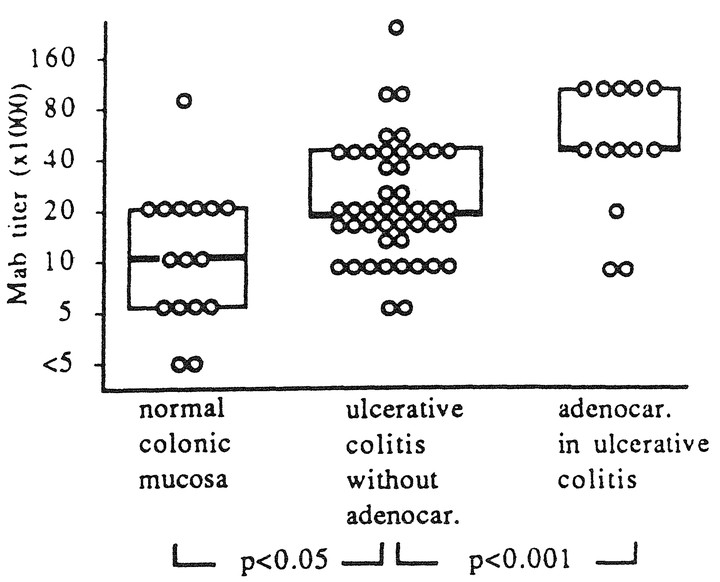Ras Oncogene Protein Product in Ulcerative Colitis

Abstract
Increased expression of cellular oncogenes has been linked to malignant-transformation. To investigate the role of oncogenes in the malignant transformation of colonic epithelium in ulcerative colitis, we compared the levels of ras oncogene protein product (p2l) in specimens of normal human colonic mucosa (n=16) with levels in specimens ofukerative colitis with inactive (n=11) and active disease (n=11), low- (n=17) and high-grade dysplasia (n=9) and adenocarcinoma (n=13). p21 content was measured using the RAP-S monoclonal antibody in a semi-quantitative immunohistochemical assay. Titer was expressed as the highest serial dilution of antibody giving definite staining with the avidin-biotin peroxidase method. There were no statistically significant differences between ras p21-levels of low-grade and high-grade dysplasia, of active and inactive ulcerative colitis, and of ulcerative colitis with and without dysplasia. Differences in p21 titer values between normal colonic mucosa, ulcerative colitis without adenocarcinoma and adenocarcinoma in ulcerative colitis were statistically significant using Fisher’s exact test (normal colonic mucosa < ulcerative colitis < adenocarcinoma in ulcerative colitis; all p < 0.05). We conclude that p21 levels in ulcerative colitis are higher than in normal colonic mucosa and that they further increase in adenocarcinoma complicating ulcerative colitis - thus suggesting an important role for the ras oncogene in the associated malignant transformation.